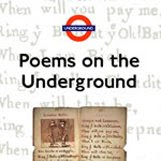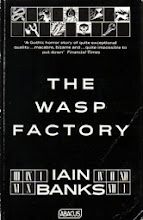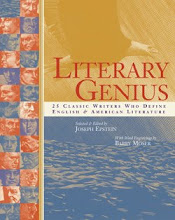
Quote
-Thomas Carlyle
Sunday 29 November 2009
The Grapes of Wrath by John Steinbeck

Sunday 22 November 2009
British Theatre is booming.

I read an excellent article this week through the Times Online Arts and Entertainment bulletin that I get e-mailed to me (along with the Times Literary Supplement Newsletter).
The article examines why theatre attendance in Britain has increased considerably in the last year or so. Statistics show that even from 2 years ago more of us are choosing to see live performances all year round, not just in the holiday season when Pantomime is popular for families of all ages. Many of us are booking tickets for other shows too. Unusual, especially as we are in the middle of a recession and everyone is watching their pennies.
The article explores many reasons for why this may be so.
- Are the theatres managed differently, opting for subsidised funding (once frowned upon) to ensure not only a wide variety of popular shows but productions by new writers and plays appealing to more specialist tastes?
- During these more thrifty times, are some of us abandoning expensive holidays and going for entertainment nearer to home?
- Are trends changing, as they always do, so that amongst so much home entertainment, do we crave community based activities?
- Publicity and advertising for live theatre has changed, with TV personalities such as Lenny Henry in Othello and David Tennant in Hamlet taking on the greats, ensuring stampedes for tickets out of curiosity/sensationalism and the rush of excitement at getting a ticket to the hottest show in town, as well as making Shakespeare more attractive to non-regular attenders.
- Do community based activities offer comfort when times are uncertain?
It could be some, or all, of the above are correct. You may have your own theories. It is great to see so many theatres doing well and so much on offer. My favourite theatres are listed on my sidebar.
My favourite productions this year have been...
A Midsummer Nights Dream by Propeller at the Liverpool Playhouse
Macbeth at the Manchester Royal Exchange
The Caretaker with Jonathan Pryce at the Liverpool Everyman
Prick Up Your Ears with Con O'Neill at the London Comedy Theatre
The poet Roger McGough at the Liverpool Playhouse
All of these have been brilliant and I have been fortunate enough to see many others too. What have you seen this year, or your most memorable plays and performances?
What are your theories on the theatre-going boom? Is America enjoying similar rises in numbers of theatre attenders?
To read the article Why British Theatre is Booming click the link and let me know your thoughts.
Sunday 15 November 2009
Writing America

Sunday 8 November 2009
Breakfast at Tiffany's by Truman Capote

Sunday 1 November 2009
October Roundup

Hay on Wye






















